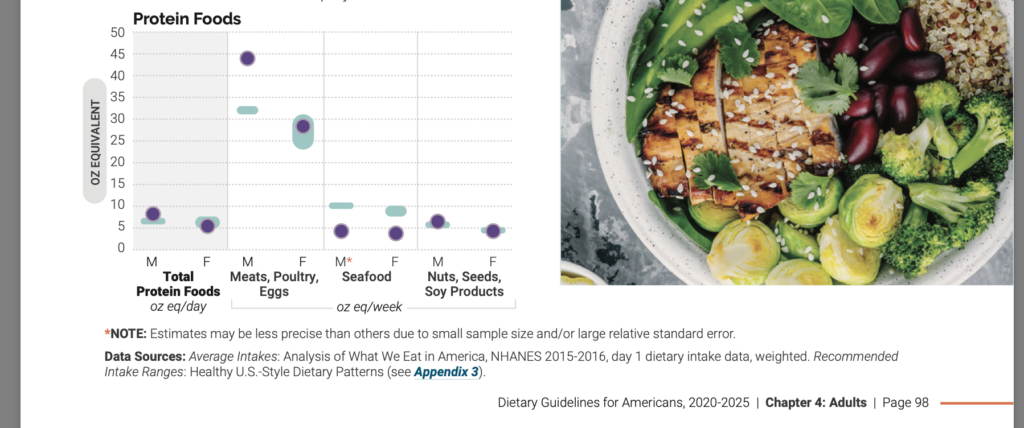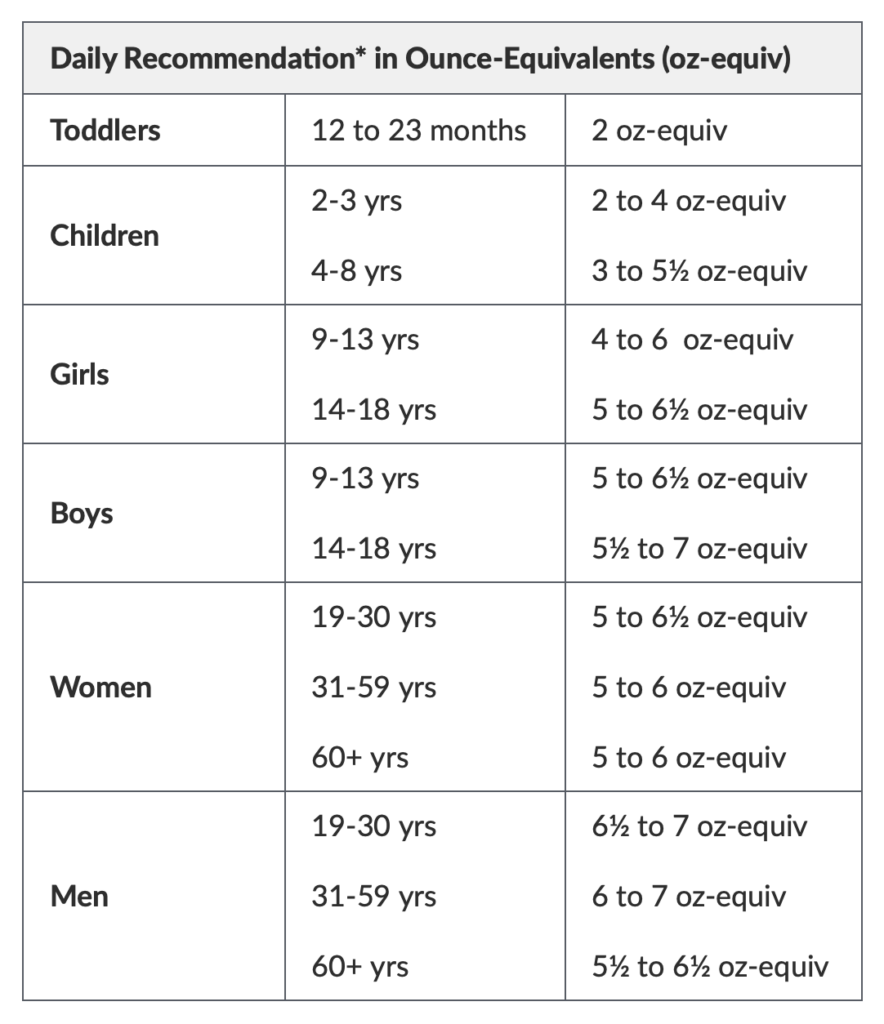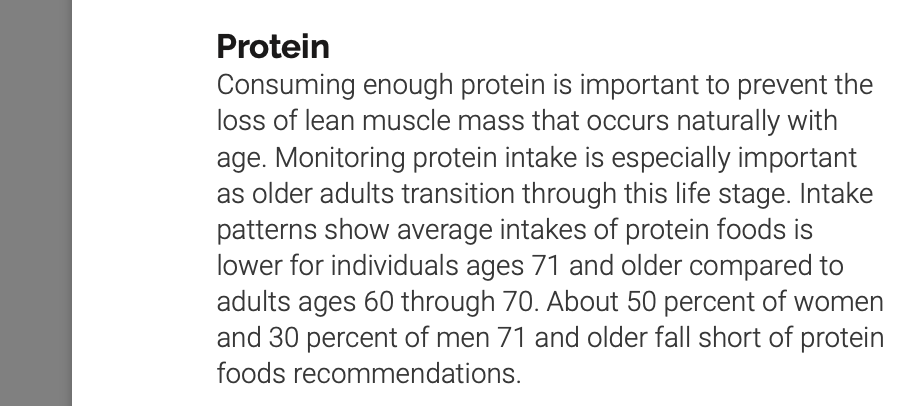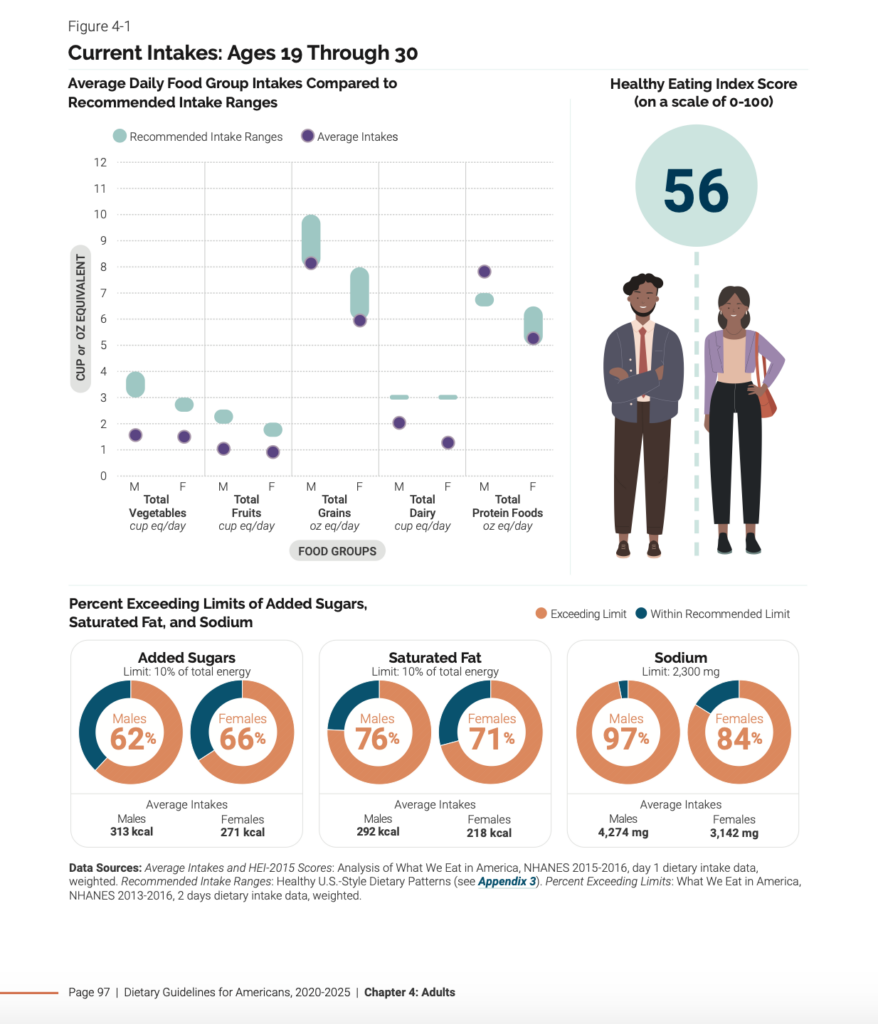Protein is absolutely vital to thousands of functions of the human body. Proteins are involved in hormonal messaging, structural components, enzymatic reactions and more. Our skin, muscles, hair and nails are built from protein. In short, the human body needs protein.
On a much more macro level, you’ve most certainly heard that you need to take in more protein if you lift, exercise or are trying to build muscle mass.
So how much protein do you need to eat? The answer is that there is not just one right answer, and finding the answer is unnecessarily complicated.

What Do the Governmental Organizations Say About Protein?
If you google “how much protein do I need?” you’ll find a bunch of little non answers. You’ll find an estimation of how many ounces a day you should eat, but of what? Cottage cheese? Beef? Different protein sources have different amounts of protein per ounce.

You’ll find an answer that says 10-35% of your total calories should come from protein. But how many calories should you eat? How many calories should you base that off of? Also, that’s a huge variance. 10-35%? 10%? Eh, why not 3.5 times that? Sure! This source from health.gov can be found here.
Another recommendation from the FDA says adults should get 50 grams a day. Fifty grams a day. Sounds hiiiighly personalized, haha. I am 140 pounds and I lift 3 days a week. Does this also apply to my friend who is a 110 pound runner? Or a 250 pound strongman? Sounds fishy to me.
This was accessed here. This article states this info is current as of 2/25/2021.
Here the Recommended Dietary Allows (RDA) is considered 0.80 g of protein per kg bodyweight per day. This is a more concrete number than 50 for everyone, or 10% – 35%. But – its still low.
The Current Dietary Guidelines on Protein Consumption
The most current dietary guidelines, published in a U.S. Department of Agriculture and U.S. Department of Health and Human Services report acknowledges that older adults take in less protein than they need and are at a greater risk of muscle loss. According to this report, 50% of women and 30% of men over 71 already eat less than the already low recommendations.

When analyzing “what we eat in America”, the report says that most men ages 19-30 eat just under 8 ounces of protein foods a day, and similar aged women, just over 5 ounces. They graded the overall eating style on a Healthy Eating Index Score (scale of 0-100) and graded Americans a 56.

Fifty six on a scale of 0-100 is pretty terrible when we are talking about our health.
Why then are we not encouraging increased protein intake? Why is this considered a max level?
The above information was accessed 5/9 from dietaryguidelines.gov.
A Better Protein Recommendation
The above numbers are dangerously low, and are considered by many to be inadequate to build or maintain muscle mass in amounts that will reduce age related sarcopenia and losses of strength.
According to these researchers published in the peer reviewed Journal Applied Physiology, Nutrition and Metabolism, a better number for maintaining muscle mass and function is 1.2 – 1.6 g of high quality protein per kg body weight, per day.
These authors find no evidence of negative effects on bone health or kidney health from higher protein diets. Instead, they find the upside of eating enough protein is optimal health, increased satiety, and even loss of fat mass, which in itself is associated with many healthy outcomes. Accessed 5/9/2023 here.
Similarly, Dr. Gabrielle Lyon, a functional medicine physician, recommends adequate protein intake for health, wellness, and graceful aging. She also cites 1.2 – 1.6 g/kg as an adequate goal, and in this post, she recommends aiming for 30 grams of protein per meal.
How much Protein Works For You?
How much protein works for you? Some people recommend even higher for active athletes and lifters. In the end, I recommend Dr. Lyon’s method, which is a simple starting point. Aim for a solid base of 30 g protein per meal, and adjust as you see fit.
Commit to this method for a few weeks and see how you feel. You might not see results in a day or two. Pay attention to:
- How your exercise feels
- How your recovery feels
- Soreness levels
- Sleep differences
- Changes in appetite
- Changes in energy levels and motivation
Make adjustments as you need.
In Conclusion – Scientific Standard for Protein Intake
Protein intake is hotly contested and often dogmatically argued over. As we have seen the past few years, sometimes science changes fast. Sometimes science doesn’t change, maybe when it should. The truth is, “science” is often filtered. True science tells the truth.
Experiment to find what works for you, what makes you feel good, and what fuels your performance.

About the author
Kathryn Alexander is a strength coach and personal trainer in Austin, Texas. She loves hiking, college football, and the feel of a perfectly knurled barbell. Read more about Kathryn here.
